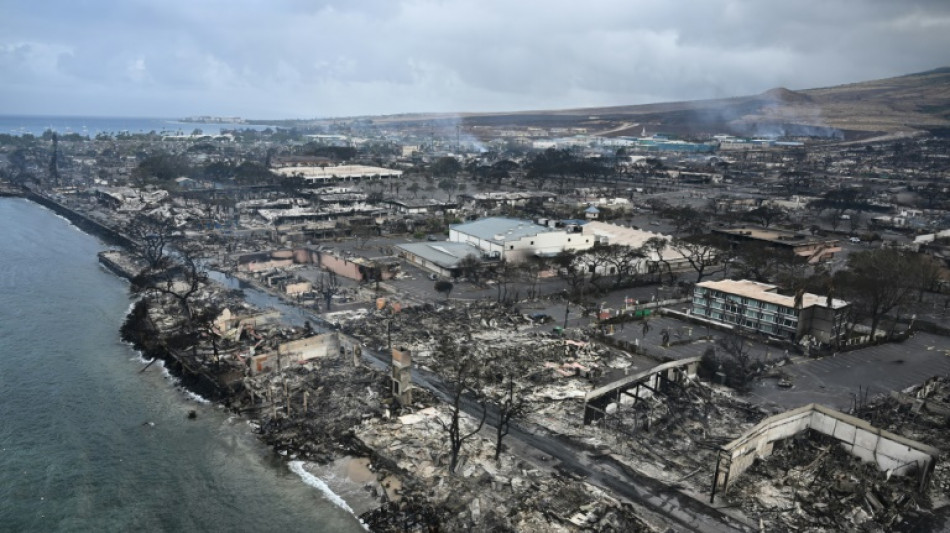
-
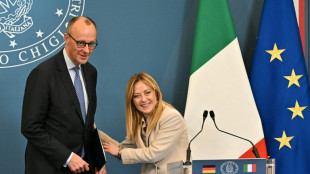 Meloni and Merz: EU's new power couple
Meloni and Merz: EU's new power couple
-
Veteran Tajik leader's absence raises health questions
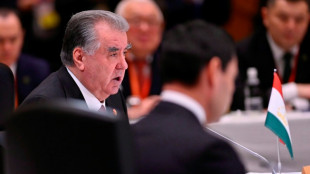
-
 EU must 'tear down barriers' to become 'global giant': von der Leyen
EU must 'tear down barriers' to become 'global giant': von der Leyen
-
Stock markets rise, dollar dips as traders await US jobs

-
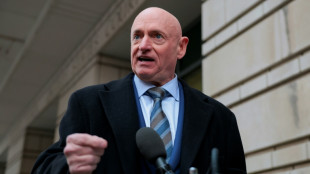 US grand jury rejects bid to indict Democrats over illegal orders video
US grand jury rejects bid to indict Democrats over illegal orders video
-
Struggling brewer Heineken to cut up to 6,000 jobs

-
 Asian stock markets rise, dollar dips as traders await US jobs
Asian stock markets rise, dollar dips as traders await US jobs
-
Britain's Harris Dickinson on John Lennon, directing and news overload

-
 9 killed in Canada mass shooting that targeted school, residence
9 killed in Canada mass shooting that targeted school, residence
-
Wembanyama scores 40 as Spurs rout Lakers, Pacers stun Knicks

-
 UK's crumbling canals threatened with collapse
UK's crumbling canals threatened with collapse
-
Hong Kong convicts father of wanted activist over handling of funds

-
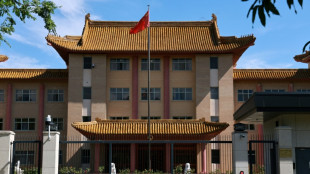 Australia charges two Chinese nationals with foreign interference
Australia charges two Chinese nationals with foreign interference
-
'Overloading' may have led to deadly Philippine ferry sinking

-
 Bangladesh to vote on democratic reform charter
Bangladesh to vote on democratic reform charter
-
China coach warns of 'gap' ahead of Women's Asian Cup title defence

-
 Glitzy Oscar nominees luncheon back one year after LA fires
Glitzy Oscar nominees luncheon back one year after LA fires
-
Pacers outlast Knicks in overtime

-
 9 killed in Canada mass shooting that targeted school, residence: police
9 killed in Canada mass shooting that targeted school, residence: police
-
De Zerbi leaves Marseille 'by mutual agreement'

-
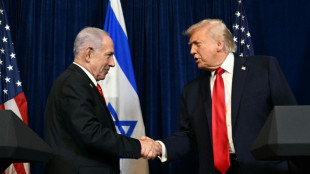 Netanyahu to push Trump on Iran missiles in White House talks
Netanyahu to push Trump on Iran missiles in White House talks
-
England captain Stokes has surgery after being hit in face by ball

-
 Rennie, Joseph lead running to become next All Blacks coach
Rennie, Joseph lead running to become next All Blacks coach
-
Asian stock markets mixed as traders weigh US data, await jobs

-
 Australian Olympic snowboarder airlifted to hospital with broken neck
Australian Olympic snowboarder airlifted to hospital with broken neck
-
Moderna says US refusing to review mRNA-based flu shot

-
 Instagram boss to testify at social media addiction trial
Instagram boss to testify at social media addiction trial
-
'Artists of steel': Japanese swords forge new fanbase

-
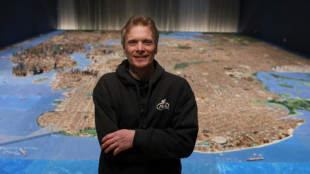 New York model, carved in a basement, goes on display
New York model, carved in a basement, goes on display
-
Noisy humans harm birds and affect breeding success: study

-
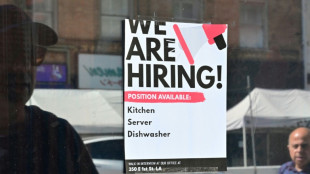 More American women holding multiple jobs as high costs sting
More American women holding multiple jobs as high costs sting
-
Charcoal or solar panels? A tale of two Cubas
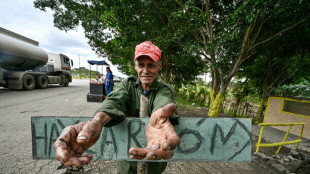
-
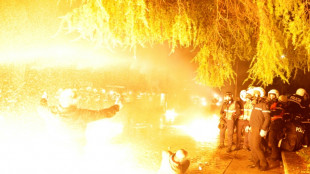 Several wounded in clashes at Albania opposition rally
Several wounded in clashes at Albania opposition rally
-
Chelsea's draw with Leeds 'bitter pill' for Rosenior

-
 'On autopilot': US skate star Malinin nears more Olympic gold
'On autopilot': US skate star Malinin nears more Olympic gold
-
Carrick frustrated by Man Utd's lack of sharpness in West Ham draw

-
 Frank confident of keeping Spurs job despite Newcastle defeat
Frank confident of keeping Spurs job despite Newcastle defeat
-
James's All-NBA streak ends as Lakers rule superstar out of Spurs clash

-
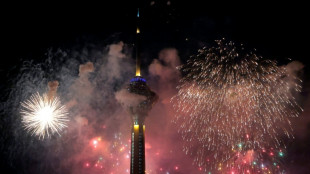 Anti-Khamenei slogans in Tehran on eve of revolution anniversary: social media footage
Anti-Khamenei slogans in Tehran on eve of revolution anniversary: social media footage
-
YouTube says it is not social media in landmark addiction trial

-
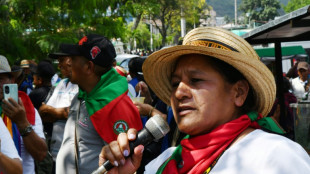 Colombian senator kidnapped, president targeted in election run-up
Colombian senator kidnapped, president targeted in election run-up
-
Britney Spears sells rights to her music catalog: US media

-
 West Ham end Man Utd's winning run, Spurs sink to 16th
West Ham end Man Utd's winning run, Spurs sink to 16th
-
US skate star Malinin leads after short programme in Olympics

-
 Man Utd's Sesko strikes late to rescue West Ham draw
Man Utd's Sesko strikes late to rescue West Ham draw
-
Shiffrin flops at Winter Olympics as helmet row grows

-
 Celtics' Tatum practices with G League team but injury return uncertain
Celtics' Tatum practices with G League team but injury return uncertain
-
Gisele Pelicot publishes memoirs after rape trial ordeal

-
 Newcastle beat sorry Spurs to leave Frank on the brink
Newcastle beat sorry Spurs to leave Frank on the brink
-
'Outrage' as LGBTQ Pride flag removed from Stonewall monument


Conspiracy theories falsely link wildfires to 'smart cities'
Disinformation about deadly wildfires in the United States and Canada has run rampant across social media, with posts falsely blaming coordinated arson, lasers -- and plans to develop "smart cities."
Allegations that the fires are a deliberate policy to clear areas for urban redesign deploy screenshots of government websites or headlines about everything from traffic monitoring to conferences about new technology.
"So what are the odds that we have two fires in two places within a week's time, and both of these places have initiatives to become smart-intelligent cities?" says a woman in a TikTok video, pointing to Lahaina, Hawaii and West Kelowna, British Columbia -- both of which were ravaged by wildfires in August.
Some of the videos fact-checked by AFP are no longer available on TikTok, but copies continue to circulate on Facebook, Instagram and X, formerly known as Twitter.
Kelowna did publish an "intelligent city" strategy in 2020, but there is no evidence that ground is being cleared on purpose -- a theory that has amassed millions of views in clips shared across platforms.
"I cannot conceive why a government would intentionally burn down a city to increase its use of smart city technologies," said Harvey Miller, director of the Center for Urban and Regional Analysis at The Ohio State University.
"There is no reason to destroy infrastructure to rebuild it smarter."
The conspiracy theories come amid widespread distrust in digitizing urban areas. A 2022 Axios-Momentive poll found only half of Americans are comfortable with the prospect of living in a smart city.
Kristina Dahl, principal climate scientist at the Union of Concerned Scientists, said claims that fires are being used to force changes on communities were "utterly baseless."
"It is really horrific to think that anyone would intentionally burn a community to the ground so that they could install technology," she added.
- Real world impact -
Similar conspiracy theories have circulated online after other disasters in North America, including Hurricane Idalia in Florida and a February train derailment in Ohio.
In Canada, plans for smart cities are often linked to supposed climate lockdowns or the elimination of cash.
Sometimes the rumors make their way to the real world.
David Mitchell, the mayor of Bridgewater, Nova Scotia, told AFP in May that a disinformation campaign targeted his city's participation in Canada's Smart Cities Challenge.
Posts falsely claimed the project would restrict residents' movement, leaving seniors worried they would be unable to visit their grandchildren.
In fact, Mitchell said the project was focused on retrofitting homes to be more energy-efficient and bringing more public transportation online.
"That's where this is going from being simply an annoyance of people spreading lies, to really concerning for me and other communities across the country because people are legitimately scared," he said.
While conspiracy theories are damaging, Ohio State's Miller said that privacy in modern cities is a concern.
"You cannot monitor a city at high resolution in real-time without creating the possibility of identifying individuals and their patterns of activities," he said.
Experts say transparency is key, pointing to a project that Google abandoned in Toronto in part because it failed to assuage concerns over how data would be used.
Lee McKnight, an associate professor at Syracuse University's School of Information Studies, said cities must ensure their plans are "privacy, security and rights-inclusive."
Andrew Smyth, chair of the Smart Cities Center at Columbia University's Data Science Institute, agreed.
His team, which tests concepts in Harlem in New York City, as well as in New Jersey and Florida, is focused on "privacy-preserving" technology.
"I'm not aware of nefarious motives in the smart city movement," he said. "There's no real reason why cities would seek to control -- they are looking to gain efficiencies."
X.AbuJaber--SF-PST

